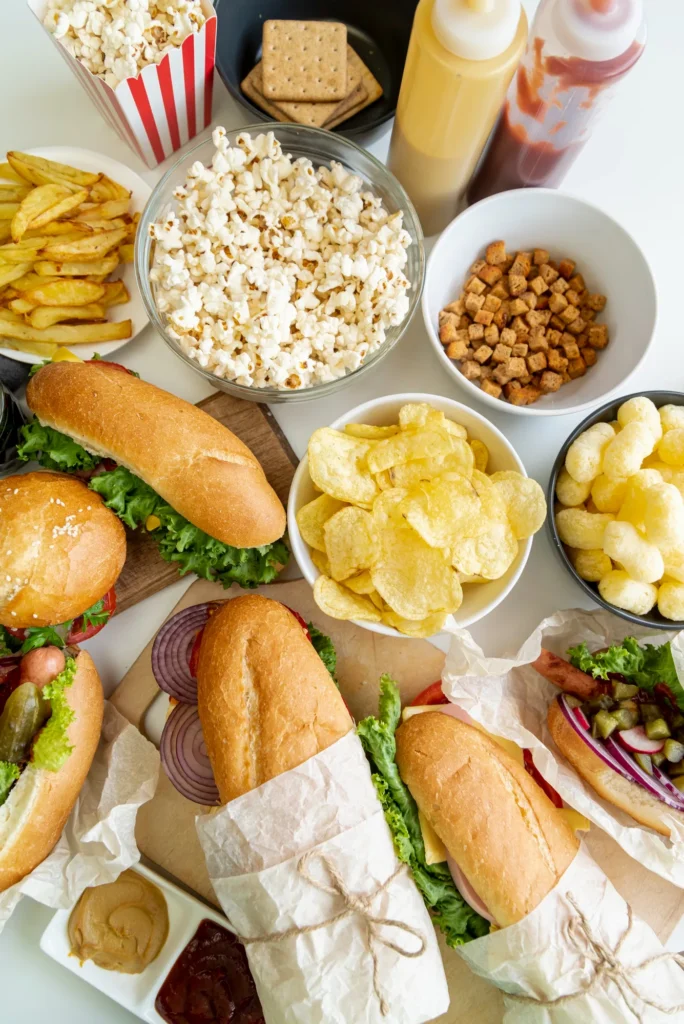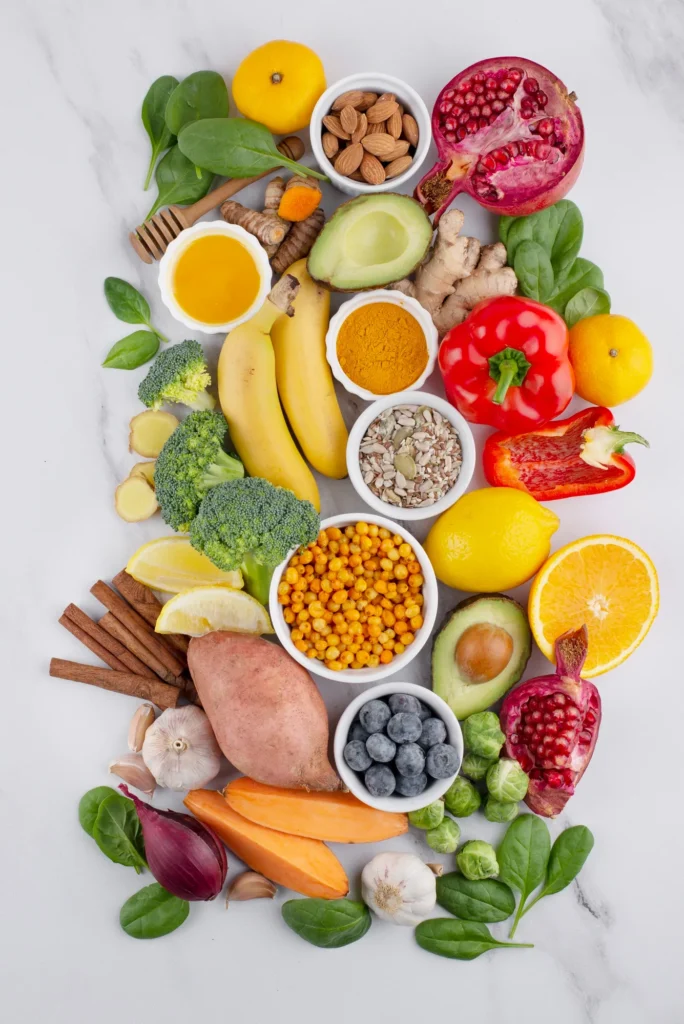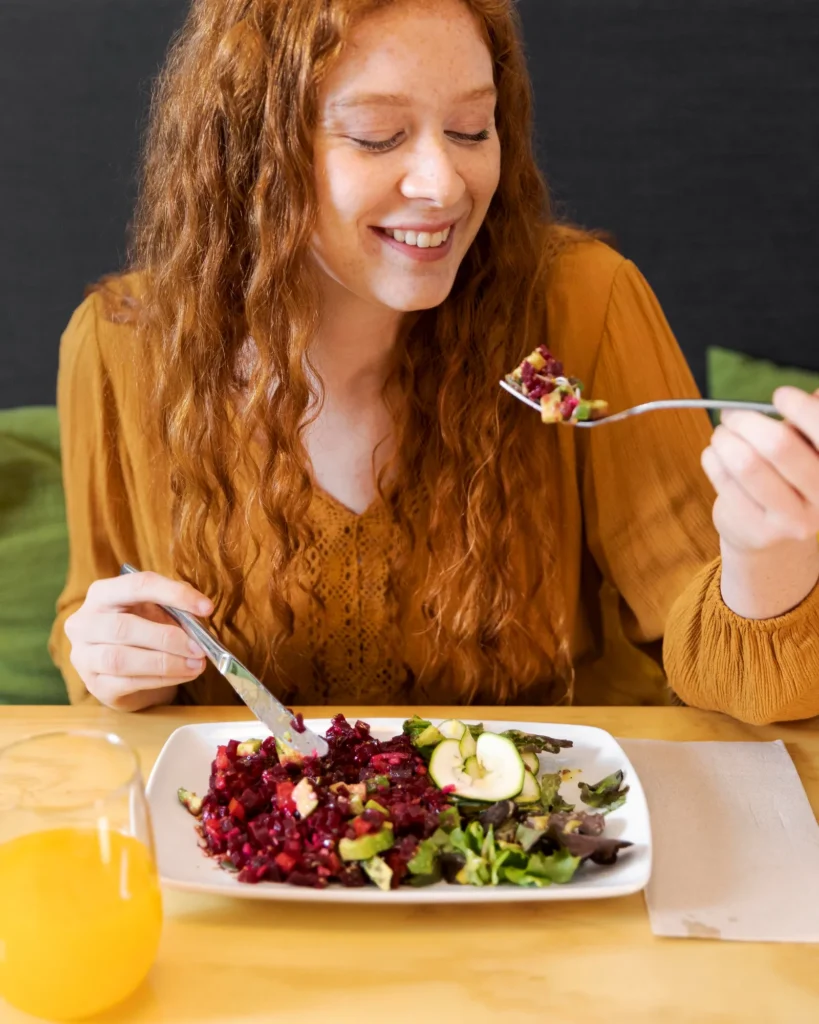Processed food plays a big role in our diets today. They’re super convenient, budget-friendly, and easy to find. However, the downside is that they usually contain a lot of sugar, salt, and unhealthy fats. These can lead to weight gain, long-term health issues, and generally feeling unwell. In this guide, we’ll explore some practical and doable tips to cut back on processed foods in your everyday meals.
What is processed food?
Processed foods are basically any food that’s been altered from its original form. This can mean anything from cutting, washing, or heating to canning, cooking, freezing, drying, dehydrating, mixing, or packaging. It also covers foods that have had preservatives, nutrients, flavours, salts, sugars, or fats added to them. Many people tend to think processed foods are unhealthy. While it’s true that many processed options aren’t the best for you, there are definitely some that can be quite nutritious.
Types of processed food
- Minimally processed foods: Includes fresh or slightly altered foods like blueberries and roasted nuts, prepared for easier access and preservation.
- Processed culinary ingredients: Contains natural ingredients like butter and oils that are slightly modified for kitchen use, meant to be added to foods.
- Processed foods: Includes foods like canned fish and fresh bread with added ingredients from groups one or two, processed for stability and enhanced qualities.
- Ultra-processed foods: Comprises intensively manufactured foods with additives and ingredients not closely related to natural foods.
Are processed foods bad for your health?
Ultra-processed foods are usually pretty tasty and easy on the wallet. But they often pack in ingredients that can be bad for you if you eat too much, like saturated fats, added sugars, and salt. Plus, they generally have less fibre and fewer vitamins compared to whole foods. Here are some reasons why processed foods can be harmful to your health.
- Increases cancer risk
- High blood pressure & diabetes
- Easier to digest
- Lacks in nutritional value
- Addictive & calorie densing
- Packed with artificial ingredients


Benefits of reducing the intake of processed foods
- Boosts mood:
Eating whole foods is linked to better mental health. The researchers pointed out that processed foods can raise the chances of anxiety and depression, which can lead you to choose unhealthy food options. - Improves sleep:
There’s some proof that eating whole foods can boost your sleep quality. Fruits, legumes, and veggies are great natural sources of melatonin and tryptophan. Tryptophan is an amino acid that plays a role in producing melatonin, which helps manage your sleep-wake cycle. - Promotes heart health:
Studies indicate that eating a diet packed with nutrients can help fend off inflammation, which is a key player in heart disease. On the flip side, a diet high in fats tends to increase cholesterol levels in the blood vessels, raising the chances of heart disease, heart attacks, and strokes. - Helps in weight loss:
To shed some pounds, you need to burn more calories than you consume. Sticking to a diet rich in whole foods like fish, fruits, lean proteins, low-fat or non-fat dairy, whole grains, and veggies can really help you cut down on calories. On the other side, processed and ultra-processed foods tend to pack in a lot of calories. Losing weight can also lower your risk of conditions like arthritis, cancer, diabetes, and heart disease if you’re overweight. - Supports a healthy gut:
Fibre is a natural substance found in fruits, nuts, seeds, whole grains, and veggies. Eating a lot of fibre helps with digestion and keeps your bowel movements regular.
Ways to reduce the intake of processed food
- Eat more veggies
When cooking at home, try to add at least one serving of veggies to boost your intake of healthy, whole foods. It can be super simple—just throw some spinach into your scrambled eggs, sauté some broccoli as a quick side, or mix in carrots or cauliflower with your soups or casseroles. Veggies are packed with nutrients and fibre, which helps you stay full longer and can keep those cravings in check. - Grab healthy snacks
If you’re pressed for time, it can be really tempting to just grab a packaged snack as you rush out the door. But having a stash of portable, healthy snacks in your kitchen can really help you make better choices on the go. I love snacking on fresh fruit, mixed nuts, edamame, and veggies with hummus. If you find yourself with a bit of extra time, you can also prep some easy snacks ahead of time. Hard-boiled eggs, turkey roll-ups, homemade kale chips, and overnight oats are all quick to prepare and great to have on hand for later. - Drink water
Drinks like soda, sweet tea, fruit juice, and sports drinks are packed with sugar and calories but don’t offer much in terms of nutrients. Switching these sugary drinks for water during the day is a smart move to reduce processed food consumption and boost your diet quality. If plain water isn’t your thing, sparkling or flavoured water can be a fun alternative. You could also jazz up your water by adding fresh fruit or herbs for some extra flavour.


4. Swap to whole grains
A super easy way to cut down on processed foods is to start replacing them with healthier whole foods. For example, you can switch out refined grains like white pasta, rice, bread, and tortillas for whole grain options like brown rice and whole grain pasta, bread, and tortillas. Whole grains are packed with essential nutrients like fibre and have been linked to a lower risk of heart disease, diabetes, and some cancers.
5. Prepare meals in advance
Cooking in big batches once or twice a week is a great way to stock up on healthy meals in your fridge, especially when life gets hectic and you don’t have time to whip something up. This strategy also helps you resist the urge to swing by a fast-food place or grab frozen dinners when you’re in a rush. To kick things off, choose a couple of recipes to tackle each week and carve out some time to get your meal prep done. I like to find recipes that use similar ingredients so I can mix things up throughout the week without getting bored.
6. Change your shopping habits
It’s a lot easier to reduce your processed food intake when you don’t have any around. When you next visit the grocery store, make sure to stock up on healthy, minimally processed foods like fruits, vegetables, whole grains, and legumes. And remember to check the labels on your favourite products while shopping. Whenever you can, try to avoid foods high in sodium, trans fats, or added sugars.
7. Go slow
You don’t have to cut out processed foods from your diet overnight. Taking your time with changes usually works better and sticks longer. Each week, give one or two of the strategies a shot, and then slowly add more to your routine. Remember, you can still enjoy going out to eat or having some processed foods now and then while keeping a healthy, balanced diet.
It’s tough to completely ditch processed foods, and that’s perfectly fine. Instead of promising to eliminate them entirely, think about making a few easy swaps. For example, opt for fruit-infused water instead of soda and choose whole fruits over packaged fruit snacks. These little adjustments can help you cut down on sugar and other processed stuff in your meals.
It’s all about progress, not perfection.
Start a healthy life by making these small, manageable changes, and complement them with regular exercise at Angelo Anestis Aquatic Centre. Not only will you feel better physically, but you’ll also be taking significant steps towards a more balanced lifestyle. Ready to get started? Become a member today.



